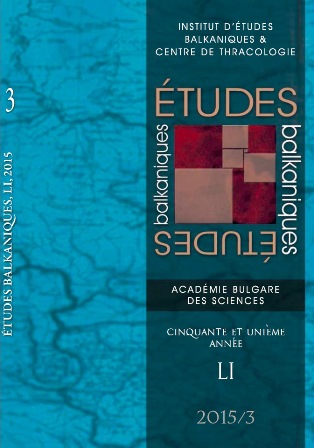The Concept of Time and Identity in the Bulgarian Literary Modernism of the 1920s
The Concept of Time and Identity in the Bulgarian Literary Modernism of the 1920s
Author(s): Ivan HristovSubject(s): History, Language and Literature Studies, Literary Texts, Studies of Literature, History of ideas, Bulgarian Literature
Published by: Институт за балканистика с Център по тракология - Българска академия на науките
Keywords: Bulgarian Literary Modernism; Concept of Time; National Identity; Modernity; Contra-Modernity; Native Art; Oswald Spengler;
Summary/Abstract: This paper examines how the concept of time and identity in Bulgarian literary modernism changed during the 1920s. The conditions for as well as the results of this change are also analyzed. In 1920, the concept of time in Bulgarian literary modernism was still cyclical. In his article “Native Art”, the Bulgarian expressionist Geo Milev proclaimed the postulates of the new art. Milev called for a representation of a mythical time and mythical space in art, favoring the past. The paper pays particular attention to the influence of Oswald Spengler’s book “The Decline of the West” (1923) upon the formation of Bulgarian modernists’ concepts of time and identity. Modernists from the Sagittarius Circle, influenced by this book, gave preference to the 19th century, the time of the Bulgarian Revival, exchanging cyclical time for historical time. Being contra-modern, Bulgarian modernism transformed into a modern project in 1925 – 1927. Concepts about time and space are examined in detail, while the concepts of continuity and tradition, as well as cyclicity and historicity are analyzed within the context of Bulgarian modernists’ writings.
Journal: Études balkaniques
- Issue Year: 2015
- Issue No: 3
- Page Range: 268-280
- Page Count: 13
- Language: English
- Content File-PDF

